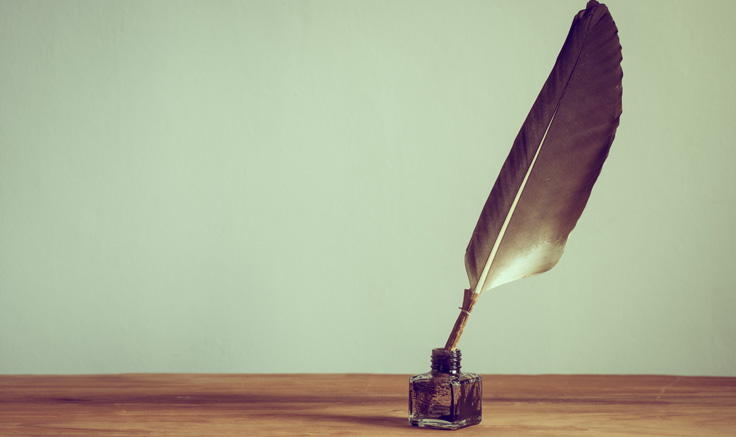
Plan your visit
Five Things I Learned from Let’s Talk: Indigenous Peoples
November 20, 2018

On Oct. 8, 2018, the Indiana Historical Society hosted Let’s Talk: Indigenous Peoples with representatives from The American Indian Center of Indiana Inc. and the Native American & Indigenous Studies program at IUPUI. It was a great conversation that really helped put so many things in context for me. To recap the discussion for those who couldn’t be present and to remind us what’s at stake during a time of year when indigenous peoples’ cultures are misappropriated and misrepresented, I thought I’d write a post to share five highlights.
Names Matter
I had no idea how many tribal names are derogatory to that particular population because the name white colonists used were given by enemies or neighboring tribes. Tribes have their own names for themselves, but those names are not what’s been popularized or used in treaty agreements. Having those names live on as denigrating sports team mascots is painful and unnecessary. I can’t imagine the hurt and weariness of constantly being referred to by a name that was given to me by someone who hated me.
Individuality Matters
It’s important to note how often indigenous peoples are referred to as one mass. Different tribes have wildly different and distinctive customs and histories. Would you lump French or British customs as one? No. And your ancestors from those countries would most likely be offended if you did. This is true of tribes as well. Beyond that, all indigenous persons have different experiences and opinions. While one person might prefer the use of American Indian to describe their heritage, another might prefer Native American or Indigenous Person. Identity is a complex issue, but be respectful of the person and take their preferences into account.
History Matters
The effects of history are long-reaching. While present-day indigenous persons have not been made to walk the Trail of Tears, the aftermath of murders, violence, legal mistreatment and prejudices suffered are still around. Derogatory mascot names, legal double standards for crimes committed by a white person versus an indigenous person, and violence against women (American Indian women are raped and sexually assaulted at 4x the rate of the national average and are 10x more likely to be murdered than other Americans) are just a few of the ways that history is repeating itself constantly for indigenous persons. Here at the Indiana Historical Society, we obviously believe that history is relevant. For some people, history can be life and death.
Images Matter
We tend to see indigenous peoples through the lens of historical images. That’s what we’ve been exposed to through our history books. For most of us who were raised in Indiana, we didn’t grow up close to federally recognized tribal lands and unless a friend or family member was an indigenous person, we probably thought of indigenous persons as something out of a history book that didn’t seem current and modern to us. Indigenous persons are here. They live in all fifty states, holding the same kinds of jobs, living in the same neighborhoods, and are a part of modern society just like the rest of us.
You Can Be an Ally
One of the questions asked of the representatives during the program was “What, in your opinion, is the single most useful thing the average Hoosier can do to further Native American civil rights?” The number one answer? Learn. The more knowledge you have, the stronger advocate and ally you can be. To that end, below are links to additional local resources.
American Indian Center of Indiana, INC.








